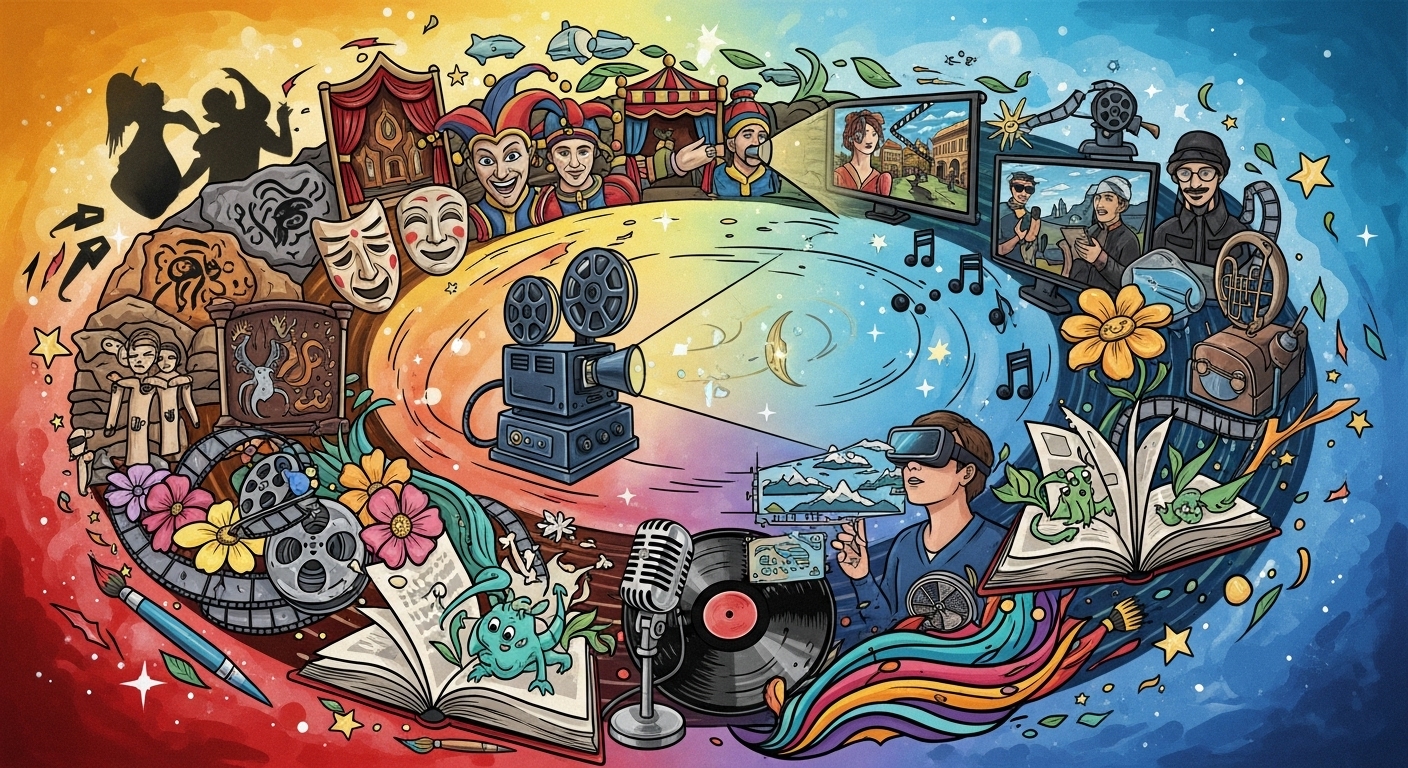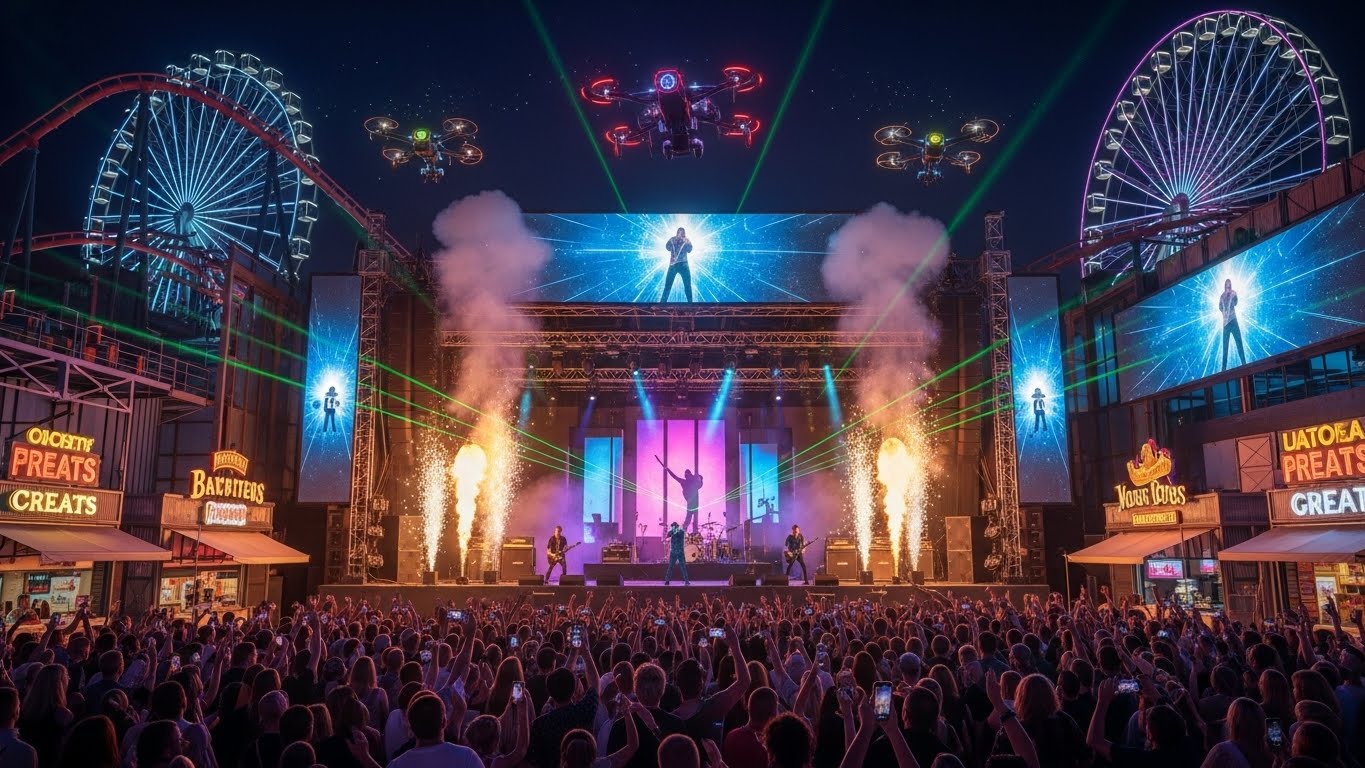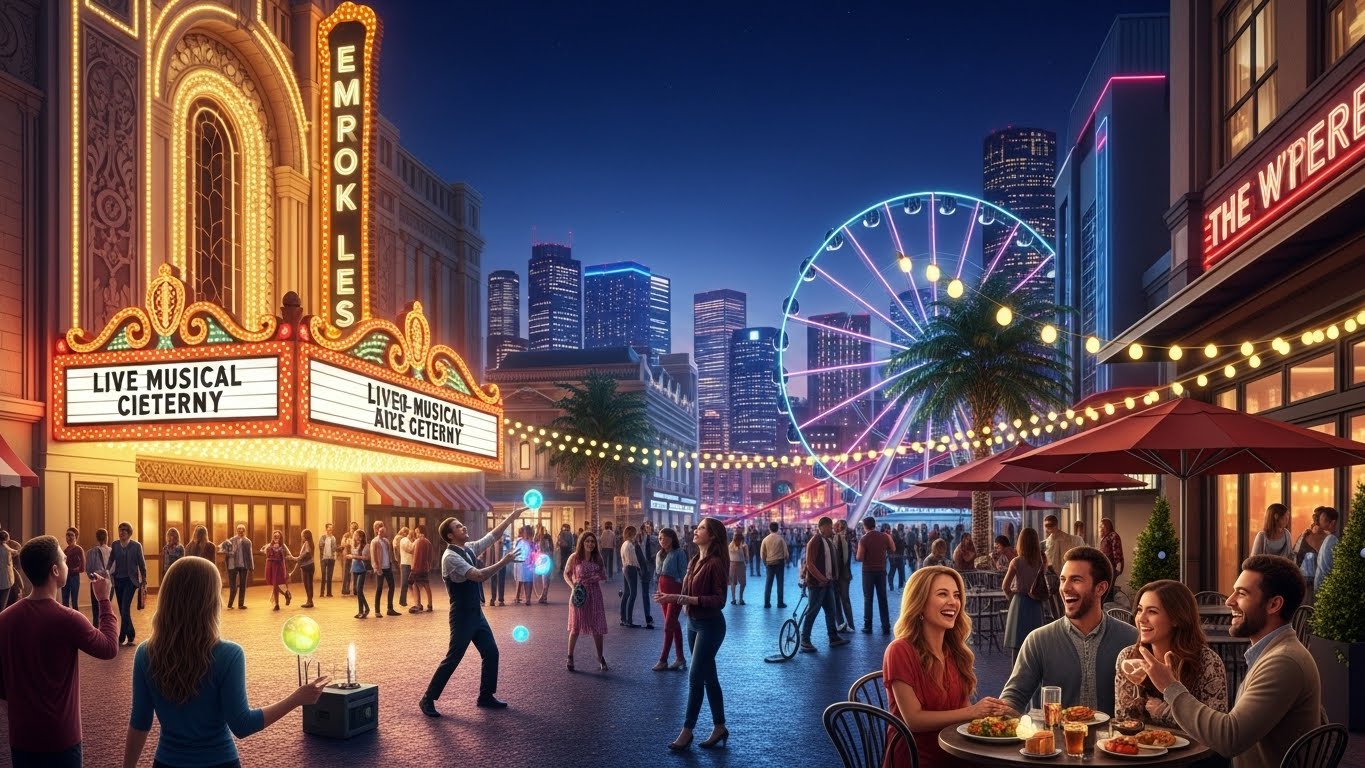Entertainment is one of the most powerful forces in human life. It shapes how we think, how we feel, and how we connect with others. From ancient storytelling around fires to modern digital streaming platforms, entertainment has evolved in fascinating ways. It reflects culture, celebrates imagination, and provides a much-needed escape from the complexities of daily life. The essence of entertainment is joy—it is the universal language that unites people across borders, generations, and beliefs.
The Roots of Entertainment
Long before technology existed, humans found ways to entertain themselves and others. In ancient civilizations, entertainment took the form of dance, music, storytelling, and theatre. These were not just casual pastimes—they were central to social and cultural life. Storytelling passed down wisdom from one generation to another. Music celebrated victory, love, and life itself. Theatre expressed human emotions through performance, allowing people to see their joys and sorrows reflected on stage.
In the Roman Empire, gladiatorial games entertained massive crowds, while in ancient Greece, dramatic plays explored themes of tragedy, comedy, and morality. These early forms of entertainment became the foundation for the art and media we enjoy today. Human beings have always had an instinct for creativity and self-expression, and entertainment was born from that instinct.
The Evolution of Performance Art
As societies advanced, so did their art and performance. The Renaissance period brought an explosion of creativity. Painters, musicians, and playwrights began exploring deeper human emotions. The works of William Shakespeare, for instance, became timeless because they combined entertainment with profound insight into human nature. His plays entertained audiences while also making them think about life, love, power, and betrayal.
Performance art continued to evolve with the invention of new mediums. Opera combined music and drama in a grand form of entertainment that captured the hearts of Europe. Later, as technology developed, new ways of storytelling emerged, leading to one of the greatest inventions in entertainment history—cinema.
The Birth of Cinema and Film Magic
The invention of motion pictures changed the world of entertainment forever. When audiences first saw moving images on a screen in the late 19th century, they were amazed. The silent film era, though without spoken dialogue, managed to convey powerful emotions through expressions and music. Icons like Charlie Chaplin and Buster Keaton made people laugh, cry, and reflect—all without uttering a word.
Then came sound and color, and the movie industry exploded with creativity. Hollywood became the epicenter of film production, producing timeless classics that still captivate audiences today. Movies like Gone with the Wind, Casablanca, and The Wizard of Oz showed how powerful storytelling could be when combined with visual art. The magic of film lies in its ability to transport audiences into different worlds—real or imagined—where they can experience emotions beyond their daily lives.
The Golden Age of Television
Television entered households in the mid-20th century and brought entertainment directly into people’s living rooms. Families gathered around the TV set to watch news, comedy shows, dramas, and variety programs. It became a shared experience that bonded people. The invention of television changed not only how people consumed entertainment but also how it was created.
Shows like I Love Lucy, The Twilight Zone, and The Ed Sullivan Show became cultural landmarks. They entertained millions and reflected the changing times. Over the decades, television evolved with color broadcasts, satellite channels, and cable networks offering hundreds of programs. It became a medium for both information and escapism.
Music: The Heartbeat of Entertainment
If there is one art form that touches every soul, it is music. From classical symphonies to rock concerts, from folk songs to pop hits, music has always been the universal language of emotion. Every generation has its sound, and every culture has its rhythm.
In earlier centuries, music was mostly live, performed in royal courts or public gatherings. With the invention of records, radios, and later digital platforms, music became available to everyone. Each era brought new genres that redefined entertainment. Jazz made people dance, rock and roll broke barriers, hip-hop gave a voice to the streets, and pop music dominated global charts.
Concerts became grand spectacles, combining sound, light, and performance. The energy of live music created unforgettable experiences, proving that entertainment is not just about watching—it is about feeling. Music brings people together, evokes memories, and can even heal emotional wounds. It is the heartbeat of the entertainment world.
The Rise of Digital Entertainment
The 21st century introduced a digital revolution that completely transformed how entertainment is consumed. Streaming services, social media, and video-sharing platforms changed the landscape of creativity. Now, anyone with a smartphone can create content and reach millions.
Digital platforms have given birth to a new generation of entertainers—YouTubers, streamers, and influencers—who entertain audiences in real-time. The power of the internet has made entertainment more interactive and personalized. People no longer wait for scheduled programs; they choose what to watch and when to watch it.
Gaming, too, has evolved into a massive industry of its own. Video games today are not just about competition—they are stories, adventures, and worlds filled with art, sound, and imagination. From single-player experiences to massive online multiplayer games, gaming has become one of the most immersive forms of modern entertainment.
The Role of Technology in Modern Entertainment
Technology has not only changed how we consume entertainment but also how it is created. Advanced computer graphics, virtual reality, and artificial intelligence have opened limitless possibilities. Movies now feature breathtaking visuals, realistic animations, and sound effects that make viewers feel part of the story.
Virtual concerts allow fans from around the world to attend performances without leaving their homes. Interactive experiences like augmented reality games blur the line between fiction and reality. Artificial intelligence even helps musicians and filmmakers generate ideas, enhance creativity, and analyze audience preferences.
This technological era proves that entertainment is not static—it constantly evolves, adapting to human innovation and imagination. The only limit is creativity itself.
The Cultural Impact of Entertainment
Entertainment is more than fun—it shapes culture and influences society. Movies, music, and art often mirror social issues, spark discussions, and inspire change. Films like Black Panther, Titanic, and Parasite are not only sources of entertainment but also reflections of human values, diversity, and struggle.
Television shows can challenge stereotypes and open minds. Music can unite people across races and borders. Even video games can tell meaningful stories about heroism, teamwork, and morality. Through entertainment, we see ourselves and the world in new ways.
At the same time, entertainment provides comfort and escape. In difficult times, people turn to laughter, music, and stories to find hope. During global crises, entertainment brings people together even when they are physically apart. It reminds us of our shared humanity.
The Business of Entertainment
Behind every film, show, or song lies a vast industry. The entertainment business is one of the most dynamic and influential sectors in the world economy. From production studios to streaming platforms, from musicians to marketers, millions of people work to create and deliver joy to audiences.
Hollywood, Bollywood, and countless regional industries continue to grow, producing content that travels across languages and borders. The rise of global streaming has made it easier for artists from different cultures to reach international audiences. This has led to a new era of cultural exchange and creative collaboration.
However, the business side also brings challenges. Issues like copyright, digital piracy, and fair compensation continue to shape discussions in the entertainment world. The balance between creativity and commerce remains a delicate one, as artists strive to maintain authenticity while meeting audience demands.
The Power of Fandoms and Communities
Entertainment is no longer a one-way experience. Audiences today are active participants. Fans form communities around their favorite movies, shows, games, and artists. They discuss theories, create fan art, write stories, and even influence the direction of future projects.
Fandoms showcase the emotional bond people develop with entertainment. Whether it’s cheering for a superhero, following a band’s journey, or engaging in online discussions about a beloved show, fans give entertainment life beyond the screen. This sense of belonging adds a new layer to the entertainment experience—it becomes personal.
The Globalization of Entertainment
In the modern age, entertainment has no boundaries. A song from Korea can top charts in America, a movie from India can win international awards, and a series from Spain can become a global sensation. The exchange of stories, music, and ideas across cultures enriches global creativity.
Streaming platforms have made foreign content accessible to everyone, leading to greater cultural understanding. Audiences are now more open to different styles, languages, and perspectives. This globalization has also encouraged collaboration among creators worldwide, blending traditions with modern innovation.
The Emotional Connection with Entertainment
At its core, entertainment is about emotion. It makes us laugh, cry, think, and dream. A good film can move us to tears, a song can remind us of a lost love, and a game can make us feel like heroes. These emotions are what make entertainment timeless.
When people feel stressed or lonely, they often turn to entertainment for comfort. It provides a safe escape where imagination has no limits. A single story or melody can bring hope and inspiration to millions. That emotional connection is what makes entertainment not just an industry, but a vital part of human life.
The Future of Entertainment
The future of entertainment promises even more innovation. Virtual reality may soon allow audiences to step inside stories. Artificial intelligence might create music tailored to individual moods. Interactive films could let viewers shape endings based on their choices.
However, no matter how advanced technology becomes, the heart of entertainment will always be the same—storytelling, creativity, and emotion. Humans crave connection, and entertainment will continue to provide that bridge between imagination and reality.
Conclusion
Entertainment is the mirror of human creativity. It evolves with time, yet its essence remains constant—the joy of experiencing stories, sounds, and emotions that transcend the ordinary. From ancient performances to digital realities, entertainment continues to shape our culture, inspire our dreams, and connect our hearts.
As the world moves forward, one thing remains certain: entertainment will always be a source of wonder. It reminds us to laugh when we are sad, to dream when we are lost, and to believe in the power of imagination. In every melody, every story, and every screen, entertainment carries the timeless magic of being human.



